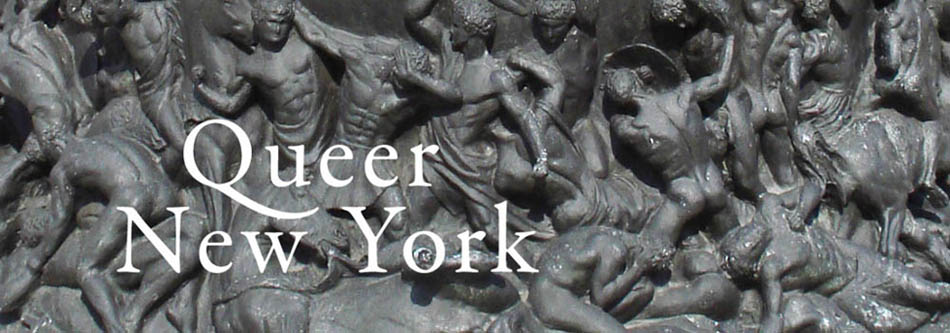picture courtesy Signature Theatre Company
Alexandre Dumas Pere, last words in The Count of Monte Cristo.
My partner and I and another friend went to see the revival of Ton Kushner’s Angels in America at the Signature Theatre last night; my partner actually sat through both parts in one day, seeing Part One (“Millennium Approaches”) in the afternoon and then staying with us for Part Two (“Perestroika”) in the evening: an almost Wagnerian day of theater in the sheer exhaustion of concentration it takes.
Altogether, it was seven hours of sitting, so he could have flown to London in that amount of time, with little spurts of getting up to go to the bathroom. We did have dinner in between, so it was kind of like the way Eugene O’Neal’s 4-hour play “Strange Interlude” used to be staged, with a dinner break between the middle acts. But, again, Tony Kushner blows “Strange Interlude” out of the water: Eugene O’Neil must be choking on envy someplace, because, sadly enough, everything that he ever wanted to do, or be, or say but couldn’t is in Angels in America. We had both seen the original production of the first part when the plays were originally done on Broadway. I was blown away by the ending then of Part One, but since we actually saw on its last day of its Broadway run, there was no way to see Part Two. So I was all set to see how Angels ends, and I did.
The play is a phenomenon. It is wonderful, dreadful, fantastic, embarrassing, huge, clumsy, gorgeous, funny (sometimes too funny, like the laughs seem forced; other times just hilarious), horrifying, shocking, brutal, and so powerful that even though I hated the ending (it was so badly done that I wondered if Kushner had just run out of solid ideas, and then grabbing at as many flakey ones as he possibly could, started jotting them down without letting any of them fall into the wastepaper basket), I still loved it.
It is one of those great artistic experiences that you feel under your skin because it has become a part of you, and no one I know of has written about the passion and (I’ve got to say) savagery of love the way Kushner has in this play. Still, at this point in my life, I wanted more closure at the end of Angels, and I didn’t get it. As one dramaturge said to me when I was writing plays: “The ending is like landing the airplane. No matter how good the flight is, you remember the landing more than anything else.”
But by the ending of “Perestroika,” which takes place in Central Park with several characters talking about the angel statue that tops the Bethesda Fountain, when you realize that the amazing theatrical machinery of AIDS-stricken Prior Walter (played effectively here by Michael Urie, one of my favorite young actors, I admit) does not die, but neither does he re-connect with his partner, the leftist Louis Ironson, or with the outwardly Ken Doll-stiff, Republican lawyer Joe Pitt, who is volcanically passionate, but (of course) a closeted Mormon—again one of Kushner’s exquisite creations (played by Bill Heck, an actor so good-looking and explosive that he had me in his pocket throughout the play), I felt: Come on, what the Heck gives here, Tony? (Pardon the bad pun.) You set this theatrical hurricane in motion, then end it with a hiccup? Shakespeare (whom all playwrights should worship) would cry.
But then of course, who the hell is Shakespeare, who wrote the greatest gay play of all times, Hamlet? Which is the greatest gay play, and the greatest straight play, and the greatest fun play, and the—anyway, there are moments of Shakespearean intensity, language, and delight in Angels in America, and the most amazing thing about this revival for me was that it proved that Tony Kushner has taken all the gay play shtick (embarrassing coming out stories; delicious guys naked on the stage; long suffering mothers and wives; closet cases who get their comeuppance—and here of course, it’s Roy Cohn, again one of Kushner’s genius strokes: turning this queer phantom of the gossip columns into a slithering reality; snap queens who work as the Greek chorus because they have all the latest dish—here he’s—or she’s—a black night nurse; and eye-rolling girlfriend patter done by boys)—he has taken all of this and through the sheer muscle of language, symbols, and even ritual made it something of worldly importance. You knew what he was talking about, no matter what your age, class, race, or variety of sexual servitude. You were gripped by it; your eyes didn’t leave the stage—and you cared about the characters because inside they had something you wanted: your own dimension, your own need for depth, love, and—God, can I say it?—salvation. We all want to be saved from something, and Tony knows it.
So I know why people adore this play (or plays, if you consider them two separate works), become obsessed with it the way you might become obsessed with Puccini or even the military-style ferocity of Tom Ford and his latest twist in a career: this ain’t “Sex and the City,” it’s the human city itself, and all the unknowable aspects of any god that rules it.
You can learn more about 3-time IPPY Award winner and gay activist Perry Brass at his website, www.perrybrass.com. You can order his new book The Manly Art of Seduction from Amazon in regular paper format or on Kindle. You can also learn more about his books at SmashWords, the complete Internet marketplace for all things EBooks and otherwise, and on his Author Page at Amazon. The Manly Art of Seduction was recently named a gold-medal winner of an IPPY Award for 2010, from Independent Publisher. You can reach him at belhuepress@earthlink.net if you have questions or comments you want to personally direct to him.




No comments:
Post a Comment